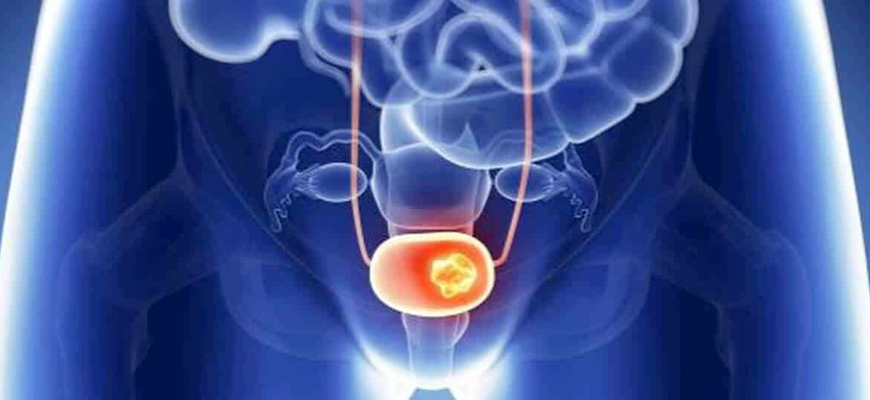
Urinary Bladder Cancer
It is the 4th most common cancer in men and 10th most common cancer in women. Generally seen in people of age 68 years and above. Almost all bladder cancers are Urothelial in origin. The urothelium consists of three to seven cell mucosal later within the muscular bladder. Ninety percent of bladder cancers are Transitional Cell Cancer (TCC) and is found in developed countries.
80-90% of patients with bladder cancer present with painless gross haematuria, which is the classic presentation. Suspect bladder cancer if any patient presents with unexplained microscopic haematuria. 20-30% of patients with bladder cancer experience irritative bladder symptoms such as:
- Dysuria
- Urgency
- Increased frequency of urination
Diagnosis:
- Urinalysis: Testing urine for blood, cells, or chemicals that indicate cancer.
- Cystoscopy: A procedure using a thin tube with a camera to view the inside of the bladder and collect tissue samples.
- CT Scan or MRI: Imaging studies to check for tumors and assess their extent.
- Biopsy: Tissue samples from the bladder are examined under a microscope for cancer cells.
- Urinary Cytology: Analysis of urine for cancerous cells.
Treatment options :
Treatment depends upon the depth and involvement of the adjacent structures.
- TURBT
- Intravesical therapy
- Radical cystectomy with ileal conduit
- Radiotherapy
- Immnotherapy
Testicular Cancer
Testicular cancer starts in the testicles, the male reproductive organs responsible for producing sperm and testosterone. It is relatively rare but highly treatable.
Symptoms:
- Testicular Lump
- Testicular Pain or Discomfort
- Swelling or Enlargement
- Change in Testicle Size or Shape
- Lower Abdominal or Groin Pain
Diagnosis:
- Physical Examination
- Ultrasound
- Tumor markers : AFP , B HCG, LDH
- Imaging : CT scan / PET scan
Treatment options :
It depends upton the TNM staging
- High Inguinal Orchdectomy
- Chemotherapy
- Radiotherapy
- RPLND
Prostate Cancer
Prostate cancer originates in the prostate gland, which is part of the male reproductive system. It is one of the most common cancers in men.
Symptoms:
- Urinary Symptoms
- Blood in Urine or Semen
- Pelvic Pain
- Erectile Dysfunction
- Bone Pain
Diagnosis:
- Prostate-Specific Antigen (PSA) Test
- Digital Rectal Exam (DRE)
- TRUS guided Biopsy under antibiotic cover.
- CT Scan /Mp- MRI
- PSMA PET scan
Treatment options :
It depends upon the stage of cacner
- Surgery : Robotic prostatectomy
- Hormonal therapy
- Radiotherapy
Active surveillance
